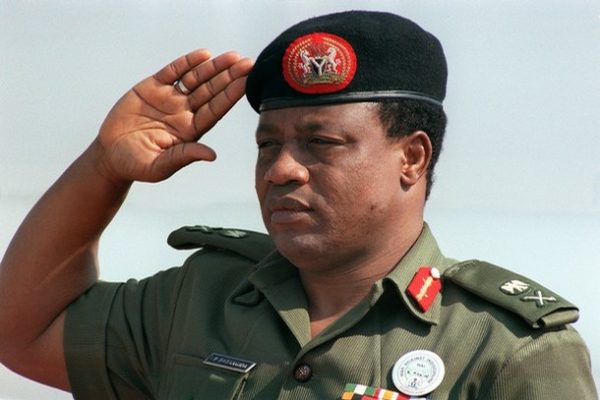After Gen. Badamosi Babangida (Rtd) had realised he did not have the guts to solely handle a final transition to a civilian government he sought help from legislators in creating an Interim National Government (ING).
As cries for a civilian government in the nation seemed to overwhelm Gen. Babangida prior to 1993, he on 2nd January 1993 successfully arm-twisted and persuaded the joint members of the House of Assembly and House of Representatives to approve a sham Interim National Government.
Chief Ernest Shonekan, an astute lawyer and who was prior to his call the Chairman of UAC Nigeria, was promptly appointed to oversee the affairs of government on 4th January. This position made Shonekan the 2nd Prime Minister of Nigeria ever after Alhaji Tafawa Balewa, even as Babangida became more of a ceremonial (military) president.
Meanwhile, plans for the 1993 elections were set more assuredly in motion and on June 12, 1993, the much awaited civilian elections in 14 years were held. Chief M.K.O Abiola, the Social Democratic Party (SDP) presidential candidate won the elections in a landslide victory. However, it became an arduous task for the government to announce him the president-elect. The affairs of government were still being managed by Chief Ernest Shonekan but largely controlled by General Babangida who had developed cold feet on whether to handover to Abiola or not.
After all, Babangida would not be the first military president on the verge of handing over government to a civilian government; Gen Obasanjo did handover government to Alhaji Shehu Shagari in 1979.

Tension arose within the polity; citizens suspected the hesitance was a gimmick to perpetuate military rule. Military circles were also divided as some anticipated the full transition to civilian leadership while some others were unwilling.
On 26th August 1993, Babangida, perhaps to save face and appear honourable, handed over the control of government to Prime Minister Shonekan, with no clear-cut powers or mission. The full pressure thus rested on Shonekan to declare Abiola as the winner of the June polls and immediately swear him in. But despite Shonekan’s slowness he also had another hot mess in his hands- he was not constitutionally made the ‘Commander in Chief of the Armed Forces’, so he had no direct powers to reform the threat that was still the military or command any of its powerful personnel. A loophole had been opened for ambitious officers of the military who could as well have been waiting for this costly error to be committed.
By 17th November 1993, General Sani Abacha, the Defense Secretary at the still powerful Armed Forces Council (AFC) seized the day, dismantled the remaining democratic institutions across the country and took over full government reins in a bloodless coup. Chief Ernest Shonekan, who had become head of a zombie and the toothless government was sent packing. Everything he had been working on with Babangida- the transition dream into civilian government, overhauling the economy in the reality of climbing deficits, swearing in M.K.O Abiola, -was quashed immediately Sani Abacha came to power. In fact, it was not too long after Abacha took controls of government that he ordered the detention of Abiola and other top political figures who could become a threat to his rule.
The lapse and selfishness of Babangida, as well as the non-pragmatism of Shonekan, aided the rule of one of the most despotic leaders Nigeria ever had. Their joint compromise-experiment of the ING, engineered with the support of the legislators and which failed to augur well, set back Nigeria for decades. This is a lesson from history.
Armed with this knowledge, we must be reminded as citizens that our say and vote in every step in the pathway of governance is directly proportional to our future and fortunes. Therefore, we should pay more attention when electing persons into political positions in the quest for a wiser collective decision-making.


